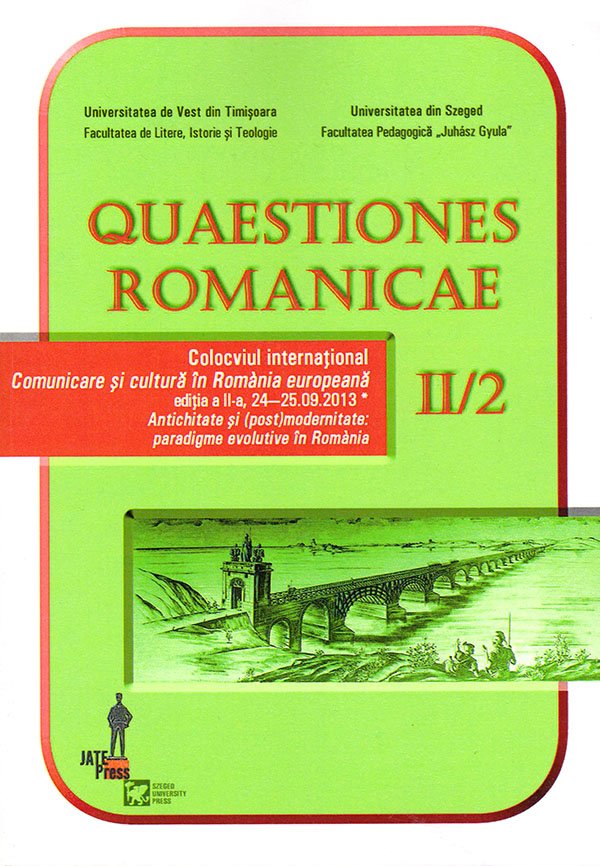Amor y frustración en La zapatera prodigiosa de Federico García Lorca. La recepción de la obra en Rumanía
Keywords: love, dissatisfaction, reality, fantasy, dramatization Federico García Lorca, the most representative writer of the Spanish Generation of 1927, was a poet, dramatist and theatre director of “La Barraca”. Although he died very young, he published many poetry collections and theatre plays. The present article focuses on two of the most recurrent themes in Lorca`s plays: that of love and personal frustrations of a married couple in The Shoemaker`s Prodigious Wife. The fifty years old shoemaker is forced to marry a much younger girl, who is eighteen, so the age difference is huge. It is a conventional marriage, because she is poor and the shoemaker is rich. The story follows the struggle of the young wife against her own husband, their bad mouth neighbors and many suitors. She projects her maternal frustration to a parallel and fantastic world, where she speaks to a child, who could be the image of the one she desires so much. One day, when he cannot handle his wife`s violence any more, the Shoemaker leaves the house. After a while he returns to the village, disguised as a puppet-master and tells an intriguing poem, which is, in fact, the short version of his life. In the end the couple reconciles. On the other hand, we will also briefly analize the reception of this play in Romania and its television dramatization.
Keywords: love, dissatisfaction, reality, fantasy, dramatization.
Resumen: Federico García Lorca, el autor más representativo de la Generación del `27, fue poeta, dramaturgo y director de la compañía teatral “La Barraca”. A pesar de haber fallecido cuando era muy joven, publicó muchos volúmenes de poemas y obras teatrales. El presente artículo pone de relieve dos de los temas recurrentes de las obras de Lorca: el amor y las frustraciones personales de un matrimonio, reflejados en La zapatera prodigiosa. Un zapatero de cincuenta años de edad se ve forzado a casarse con una mujer mucho más joven, que tiene dieciocho años; por lo tanto, la diferencia de edad es significativa. Se trata de un matrimonio por conveniencia, ya que ella es pobre y él, rico. El argumento se centra en las disputas de la joven con su marido, con sus vecinos malhablados y muchos pretendientes. Ella proyecta su frustración maternal a un mundo paralelo, fantástico, en el que habla con un niño, que podría simbolizar la imagen del hijo que tanto desea tener. Un día, cuando ya no puede aguantar más la violencia de su mujer, el Zapatero se va de la casa. Después de un tiempo, vuelve al pueblo, disfrazado de titiritero y recita un fascinante poema, que, en realidad, resume su vida. Al final de la obra la pareja se reconcilia. Por otro lado, analizaremos brevemente la recepción de esta obra en Rumanía y su adaptación para la televisión.
Palabras clave: amor, insatisfacción, realidad, fantasía, adaptación.
